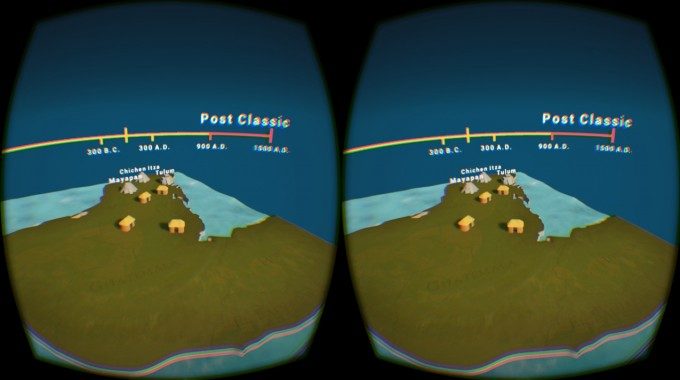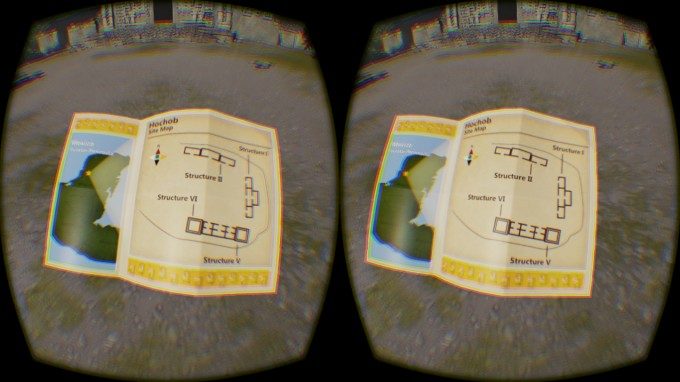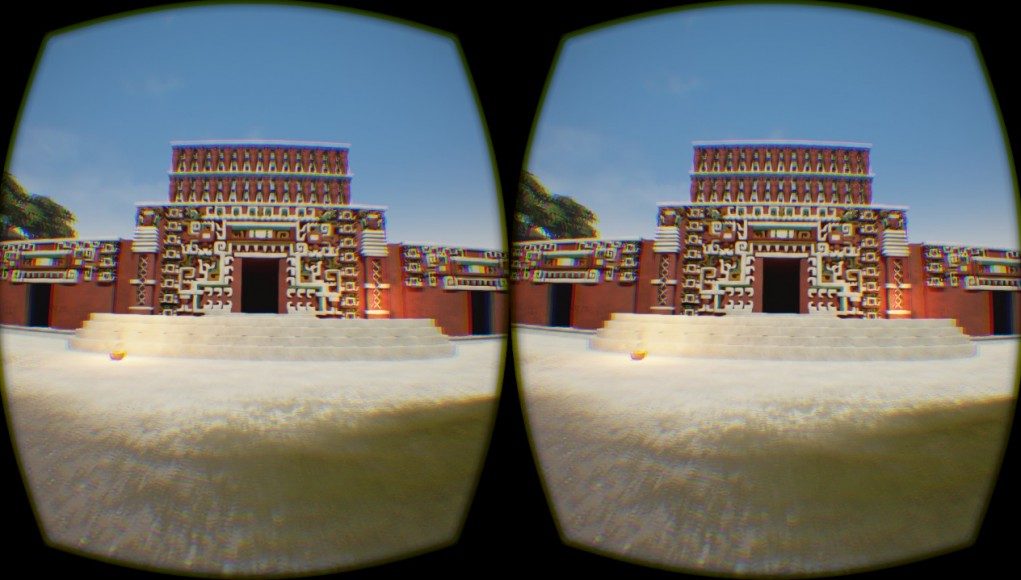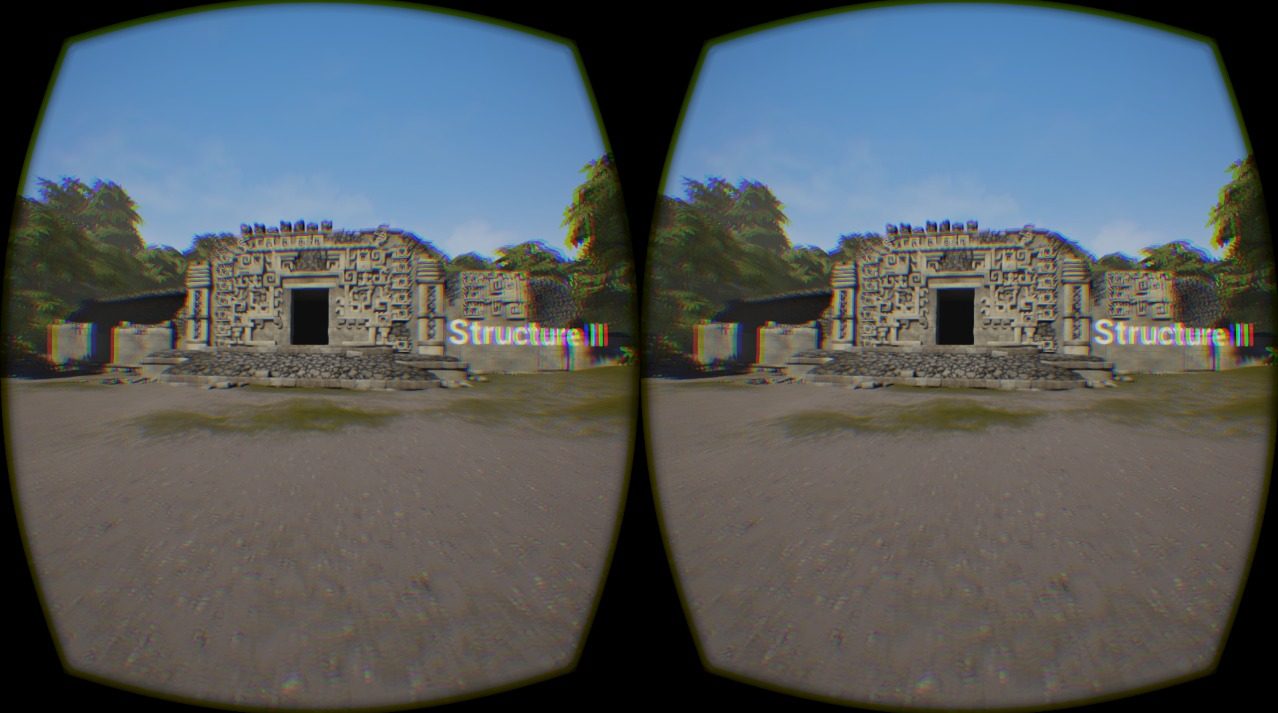Meso VR, an educational project created by Dallas based studio Eightfold VR, introduces you to the world of the Maya by taking you back to 900AD to see one of the ruins brought to life.
Meso VR first presents you with a quick history lesson of pre-Colombian Mesoamerica that takes you through a mapped timeline of the Central American culture’s birth, rise, and eventual fall to Spanish conquistadors. It’s engaging, and just enough information to tickle my curiosity without smothering me with dates and extraneous facts—like a quick summary you’d see in a grade school textbook—except, you know, not boring.

Model houses and stone temples appear and disappear to explain where (and more importantly how) the Maya became the dominant culture in the area.
The experience then transports you to a plaza in the the center of the modern day Hochob archaeological zone, which according to the narrator is actually Mayan for “the place of the corn stalks.” The exact timeline isn’t known, but historians estimate the ceremonial structures were built between 800-900AD. A handy map can be brought up so you can orient yourself with the archaeological site too as you listen to indigenous Mayan fire flute.
After a quick explanation of Structure II’s architecture—modeled to look like a giant monster’s mouth with gnashing teeth—you’re then transported to the year 900AD to see the stucco building in it’s full vibrancy and color.
I would have like to have gone into the building to explore its murals, or at very least walk around it to get a better view, but the experience for now is exclusively ‘on rails’. The narrator tells you that Structure II is theorized to be modeled after a cave, as ancient Maya saw them as portals into the spirit world, so it could possibly serve the same purpose. Just hearing this gives me same neurological itch I so desperately need to scratch when endlessly clicking through Wikipedia links, and hope that Eightfold can gather enough historical resources to faithfully recreate more of the buildings exteriors and interiors.

In the end, the 10 minutes it took me to go through both the timeline and the outside exploration of the building left a much larger impression on me than I thought it would, and successfully plugged itself directly into the hole in my brain created by the Back to the Future films and cartoons like The Magic School Bus (1994). I only wish I could have experienced the power of first-person experiences like Meso VR in a classroom setting, and envy the kids growing up now for the information-rich VR field trips they’re bound to go on in the near future.
We’ll be keeping an eye out for Eightfold’s next installment of Meso VR, which promises to recreate more structures from the area.








